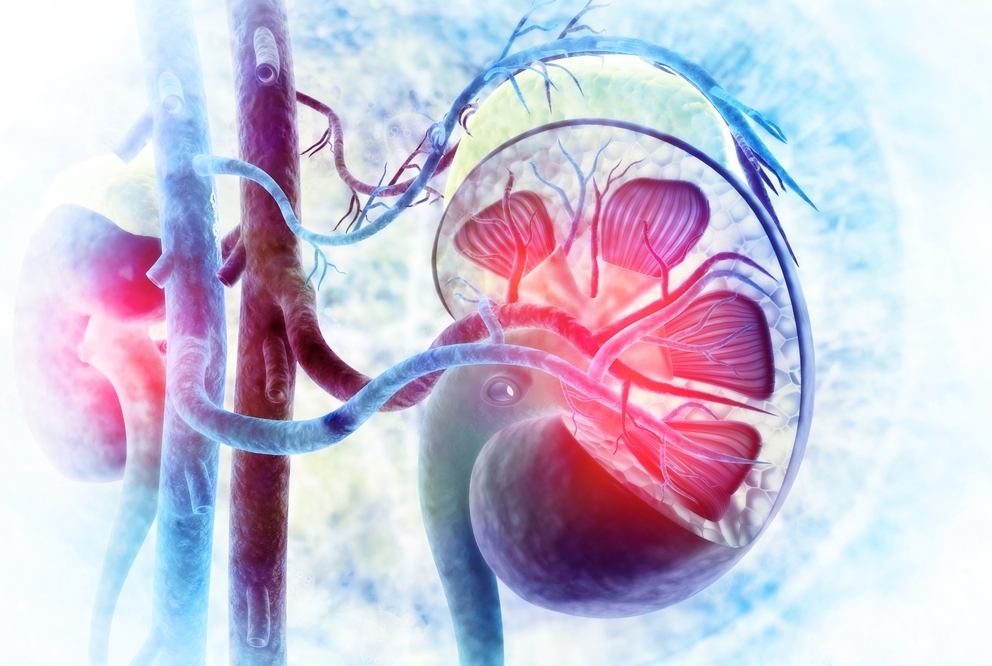
A new study found that retinoic acid receptors (RARa) in the proximal tubules of the kidney play a crucial role in limiting the damaging effects of kidney injury that often lead to kidney failure. Researchers from Weill Cornell Medicine have developed a preclinical model that showed a condition like chronic kidney disease develops when RARa in proximal tubules stop working.
Currently, there are few drugs on the market, so patients with prolonged, untreated kidney disease must undergo dialysis or kidney replacement. The paper, published in PNAS on Feb. 8, suggests drugs that can activate RARa in the kidney could counteract fibrosis—the buildup of scar tissue that results from inflammation caused by diabetes, autoimmune diseases or viral infections like COVID-19—to treat kidney disease.
Our kidneys filter blood to remove waste, which is excreted in urine. Proximal tubules are an important part of this process and return the substances needed by the body back into the blood. The RARa help maintain the health of proximal tubules and keep the kidneys working.
When RARa is knocked out in the proximal tubules of their mouse model, the researchers discovered that within three days mitochondria that produce energy in cells become distressed and cells start dying. After three months, they observed that epithelial cells in the proximal tubule secreted growth factors that led to fibrosis and decreased levels of retinoic acid, which normally binds to the RARa.
Stopping progressive renal fibrosis, a hallmark of late-stage chronic kidney disease, would be one way to prevent kidney failure. The researchers hope to use their novel mouse model to identify drugs that activate RARa to slow or reverse fibrosis and to potentially return kidneys to a healthy state.
Lead author: Dr. Krysta DiKun, Pharmacology, second author, Dr. Xiao-Han Tang, Pharmacology
Corresponding author: Dr. Lorraine Gudas, Chair of Pharmacology, Weill Cornell Medicine
This work was supported through grants from the National Institutes of Health, grant R01DK113088, and the National Cancer Institute, grant T32 (5T32CA062948-26).
Many Weill Cornell Medicine physicians and scientists maintain relationships and collaborate with external organizations to foster scientific innovation and provide expert guidance. The institution makes these disclosures public to ensure transparency. For this information, please see the profile for Dr. Lorraine Gudas.

